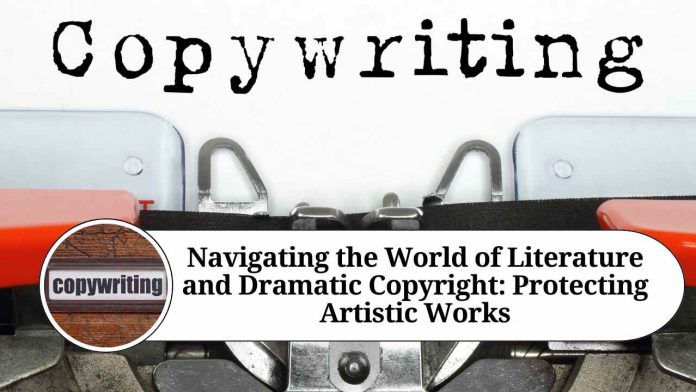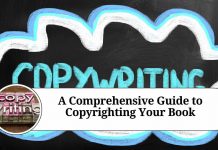Introduction
In the vast realm of literature and drama, creativity flourishes, and artists weave captivating stories and stage unforgettable performances. However, amidst this artistic tapestry, the issue of copyright arises to safeguard the rights of creators. Copyright laws exist to protect original works, ensuring that creators receive due recognition and financial benefits. In this blog, we will explore the world of literature and dramatic copyright, understanding its significance and how it functions in the ever-evolving creative landscape.
Defining Literature and Dramatic Copyright: Copyright, at its core, grants exclusive rights to creators over their original works, preventing unauthorized use or reproduction by others. When it comes to literature and drama, copyright protects written and performed expressions of creativity, such as books, novels, poems, scripts, plays, and screenplays. This legal framework provides creators with control over the distribution, adaptation, and public performance of their works.
Copyright Ownership and Duration: The question of ownership often arises when discussing literature and dramatic copyright. In most cases, the author or creator holds the initial copyright to their work. However, exceptions exist, such as when a work is created as part of employment, wherein the employer may own the copyright. It’s essential for creators to understand their rights and any contractual agreements they enter into regarding their works.
In terms of duration, copyright protection typically lasts for the creator’s lifetime plus a certain number of years after their death. The specific duration varies from country to country, but it usually extends for several decades. After the copyright expires, the work enters the public domain, becoming freely available for anyone to use without permission.
Exclusive Rights and Fair Use: Copyright grants creators exclusive rights, which encompass a range of activities related to their works. These rights include reproduction, distribution, public performance, adaptation, and display. Any unauthorized use of a copyrighted work that infringes upon these rights can lead to legal consequences.
However, the concept of fair use provides certain exceptions to copyright protection. Fair use allows limited use of copyrighted material without seeking permission from the copyright holder. This provision exists to balance the rights of creators with the needs of society, such as for educational purposes, criticism, commentary, news reporting, or transformative uses. Determining fair use requires careful consideration of factors such as the purpose and nature of the use, the amount of the work used, and the potential impact on the market for the original work.
Protecting Copyrighted Works: To ensure proper protection of their literary and dramatic works, creators should take proactive steps. The most crucial step is affixing a copyright notice to the work, including the copyright symbol (©), the year of publication, and the copyright owner’s name. While copyright protection is automatic upon creation, registering the work with the appropriate copyright office can provide additional benefits, such as the ability to sue for infringement and the potential for higher damages in case of a successful lawsuit.
Creators may also consider licensing their works to others, granting specific permissions for use in exchange for royalties or fees. Licensing agreements lay out the terms and conditions under which others can use the copyrighted material, ensuring that the creator retains control over their work while allowing others to benefit from it.
Conclusion
In the dynamic world of literature and drama, copyright serves as a vital tool for creators to protect their artistic expressions. It safeguards their rights, encourages innovation, and fosters a vibrant creative ecosystem. By understanding the fundamentals of literature and dramatic copyright, creators can navigate the complexities of the legal landscape and ensure their works receive the recognition and respect they deserve.
Other Related Blogs: Section 144B Income Tax Act
Frequently Asked Questions (FAQs)
Q: What is literature and dramatic copyright?
A: Literature and dramatic copyright refers to the legal protection granted to creators of original written and performed works. It encompasses works such as books, novels, poems, scripts, plays, and screenplays, giving creators exclusive rights over the distribution, adaptation, and public performance of their works.
Q: How long does literature and dramatic copyright last?
A: The duration of literature and dramatic copyright varies from country to country. In most cases, it lasts for the creator’s lifetime plus a certain number of years after their death. After the copyright expires, the work enters the public domain and can be used freely without permission.
Q: Do I need to register my work to have copyright protection?
A: No, copyright protection is automatic upon the creation of the work. However, registering your work with the appropriate copyright office provides additional benefits, such as the ability to sue for infringement and the potential for higher damages in case of a successful lawsuit.
Q: What is fair use in literature and dramatic copyright?
A: Fair use is a legal concept that allows limited use of copyrighted material without seeking permission from the copyright holder. It exists to balance the rights of creators with the needs of society, such as for educational purposes, criticism, commentary, news reporting, or transformative uses. Determining fair use requires considering factors such as the purpose and nature of the use, the amount of the work used, and the potential impact on the market for the original work.
Q: How can I protect my copyrighted literary or dramatic work?
A: To protect your copyrighted work, you can affix a copyright notice to it, including the copyright symbol (©), the year of publication, and your name as the copyright owner. Registering your work with the appropriate copyright office can provide additional protection. Consider licensing your work to others, granting specific permissions for use in exchange for royalties or fees, while retaining control over your work.
Q: Can I use copyrighted material in my own work?
A: Using copyrighted material in your own work without permission may constitute copyright infringement. However, certain uses may qualify as fair use, allowing limited use without permission. It is crucial to understand the principles of fair use and seek legal advice if you are uncertain about the boundaries.
Q: What happens if someone infringes my literature or dramatic copyright?
A: If someone infringes your literature or dramatic copyright, you may take legal action to protect your rights. This may involve sending a cease-and-desist letter, negotiating a settlement, or filing a lawsuit. Copyright infringement can result in various remedies, including injunctions, monetary damages, and legal fees.
Q: Can I copyright the title of my literary or dramatic work?
A: In general, titles cannot be copyrighted. Copyright law protects the content and expression of a work, not its title. However, specific circumstances or elements associated with a title, such as a unique logo or design, may be eligible for copyright protection or trademark registration.
Q: Can I transfer my literature or dramatic copyright to someone else?
A: Yes, copyright can be transferred or assigned to another individual or entity through a written agreement. This transfer of rights should be done through a formal contract that outlines the terms and conditions of the transfer.
Q: Does literature or dramatic copyright extend internationally?
A: Copyright protection extends to other countries through international agreements and treaties. However, the specifics of copyright law may vary from country to country. It is advisable to consult the copyright laws of each relevant jurisdiction or seek legal advice to ensure proper protection.




















